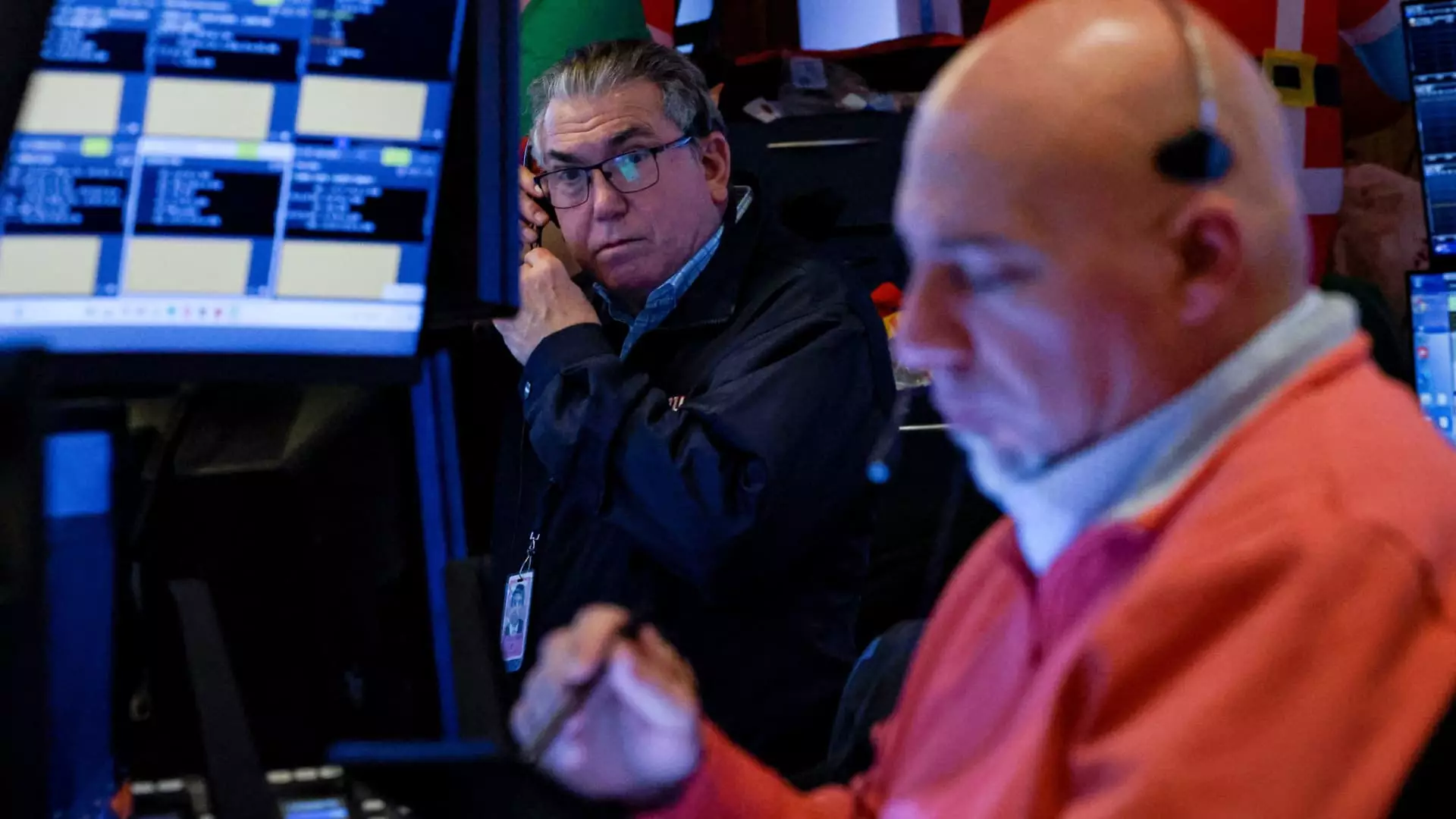European financial markets are bracing for a challenging start as traders gear up for a critical week dominated by pivotal central bank meetings. With the global economic landscape heavily influenced by monetary policy decisions, investors are approaching the day with caution. Predictions indicate that the U.K.’s FTSE 100 index may open lower by 18 points at 8,240, while Germany’s DAX is expected to decline by 22 points to 20,291. The French CAC could see a dip of 12 points, settling around 7,342, while Italy’s FTSE MIB might fall by 129 points to 34,618, based on data from IG.
At the center of attention is the U.S. Federal Reserve, which is set to commence its final policy meeting of the year. As anticipation builds, traders are forecasting a remarkable 95% probability of a quarter-point rate cut on Wednesday. Insights into the Federal Reserve’s future policy trajectory will be largely derived from Chair Jerome Powell’s press conference following the meeting. Market participants are particularly keen to understand how upcoming adjustments might impact inflation and economic growth, as these factors remain critical in shaping investor sentiment across the globe.
Following the Federal Reserve’s gathering, the Bank of England will convene on Thursday. However, the sentiment in the market suggests that investors are not expecting significant movements, with only a faint likelihood of an additional rate cut before the year’s end. The current economic climate, characterized by inflationary pressures and evolving economic indicators, will weigh heavily on the discussions within the Bank of England. Therefore, market traders will be looking to discern any forward guidance that may emerge from these meetings.
Compounding the economic uncertainty is the political landscape in Germany. Chancellor Olaf Scholz faced a confidence vote in parliament on Monday, which he strategically allowed to pass in order to trigger a snap election, set for February 23. This development comes in the wake of a coalition government collapse, introducing another layer of unpredictability in the European economic environment. Such political shifts can significantly affect market confidence and stability, prompting investors to reassess their positions.
As European markets navigate this complex scenario, Asian-Pacific markets exhibited mixed performance during Tuesday’s trading. Concurrently, U.S. stock futures dipped slightly on Monday night, reiterating cautious sentiment among global investors.
As the week unfolds, major data releases will also play a substantial role in shaping investor strategies. Market watchers will be eyeing U.K. unemployment statistics and the Ifo business climate index from Germany, as these metrics provide insight into economic health and future trends. Moreover, the absence of significant earnings announcements adds to the subdued atmosphere, fostering an environment ripe for volatility as traders cautiously await clarity from central banks and political developments alike.
This week, the intricate interplay between political maneuvers and monetary policy decisions will undoubtedly set a critical backdrop for market activities across Europe and beyond.

